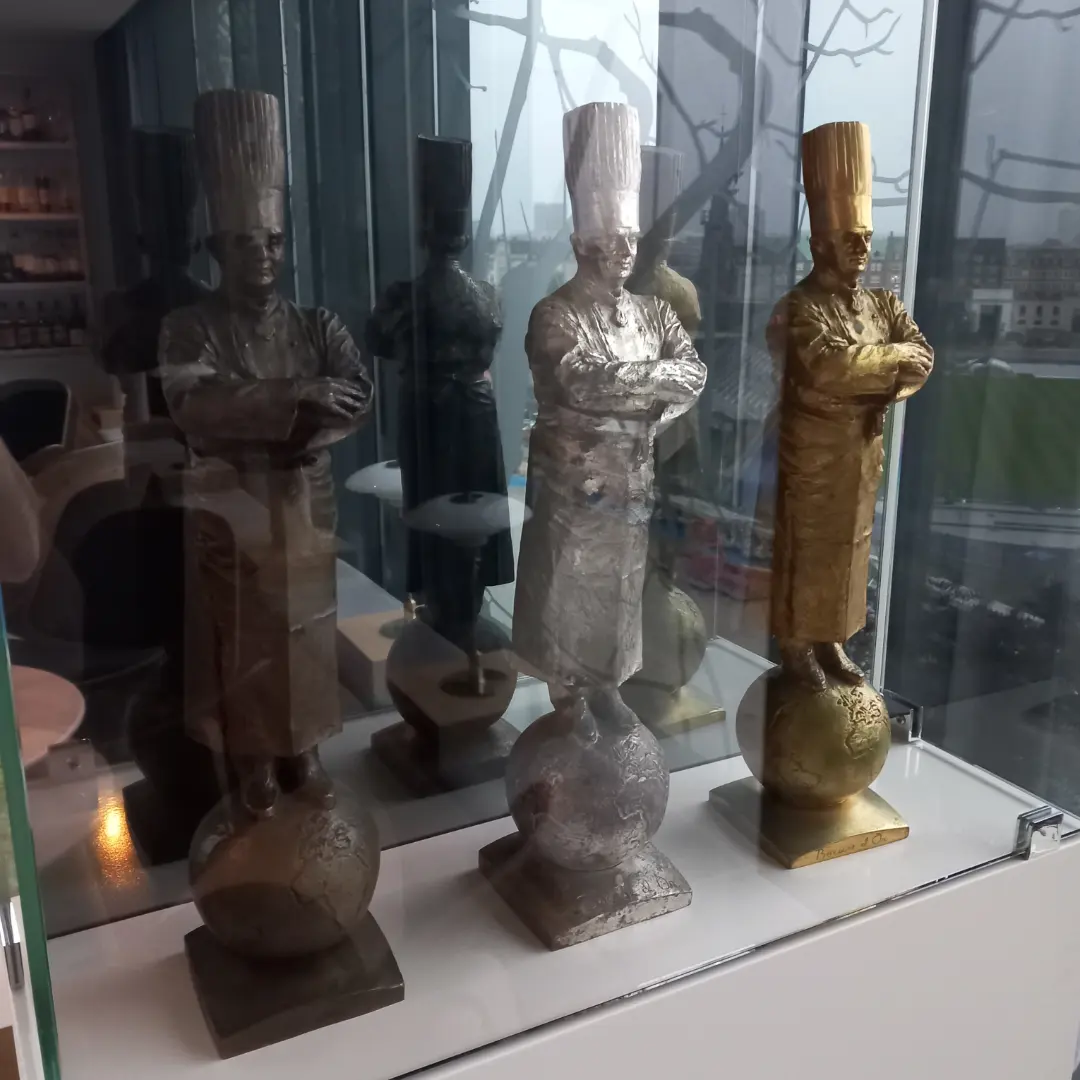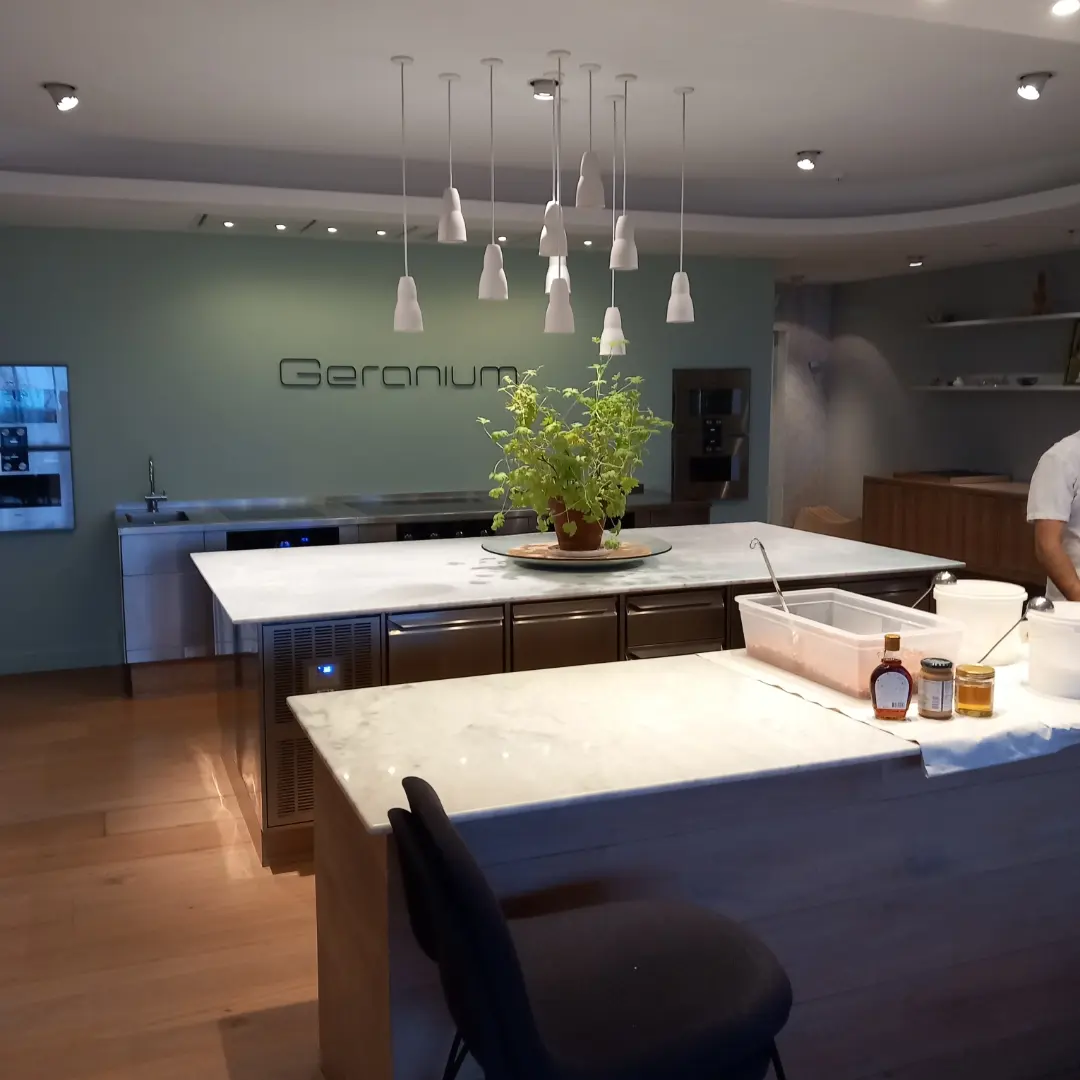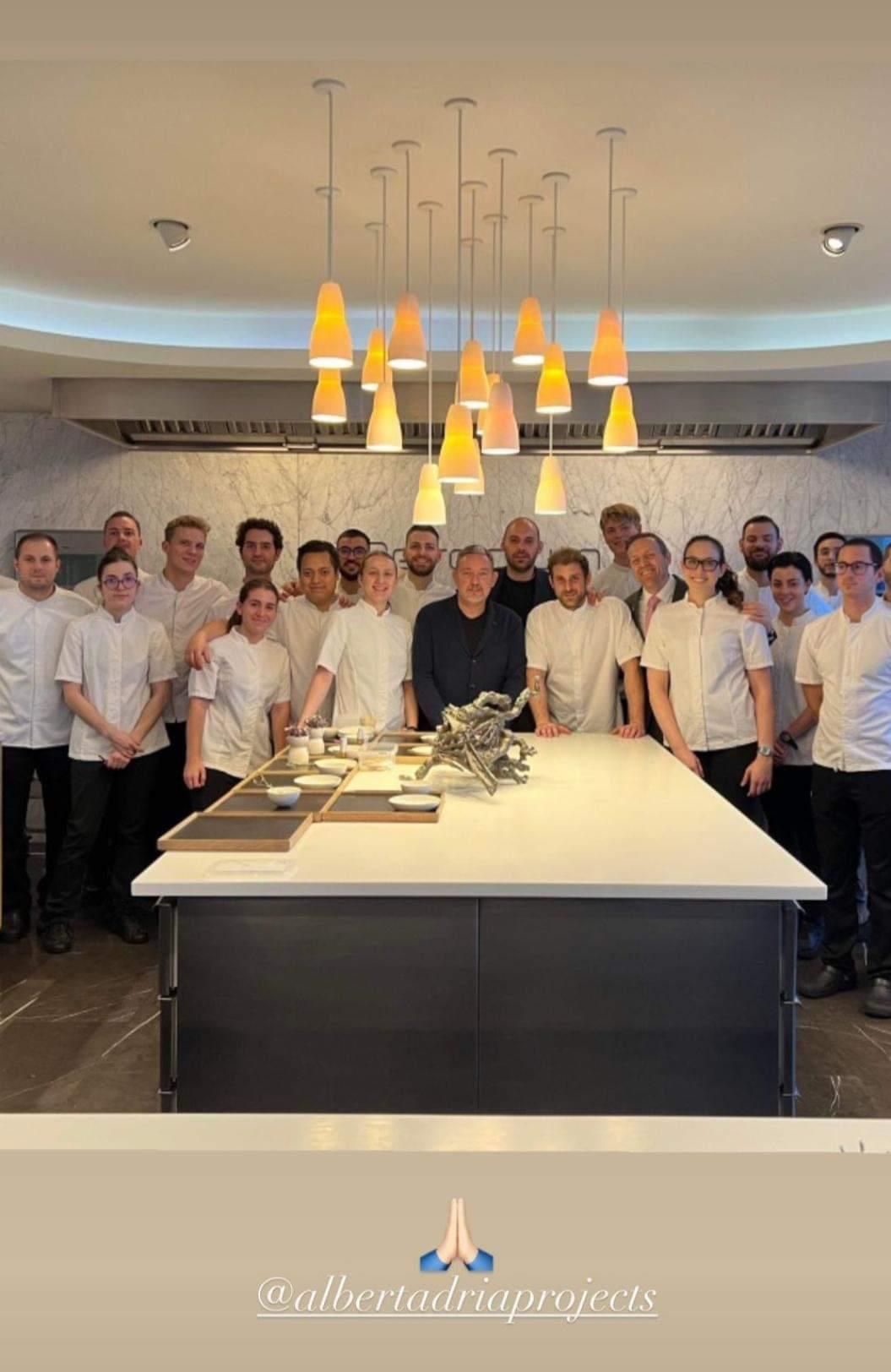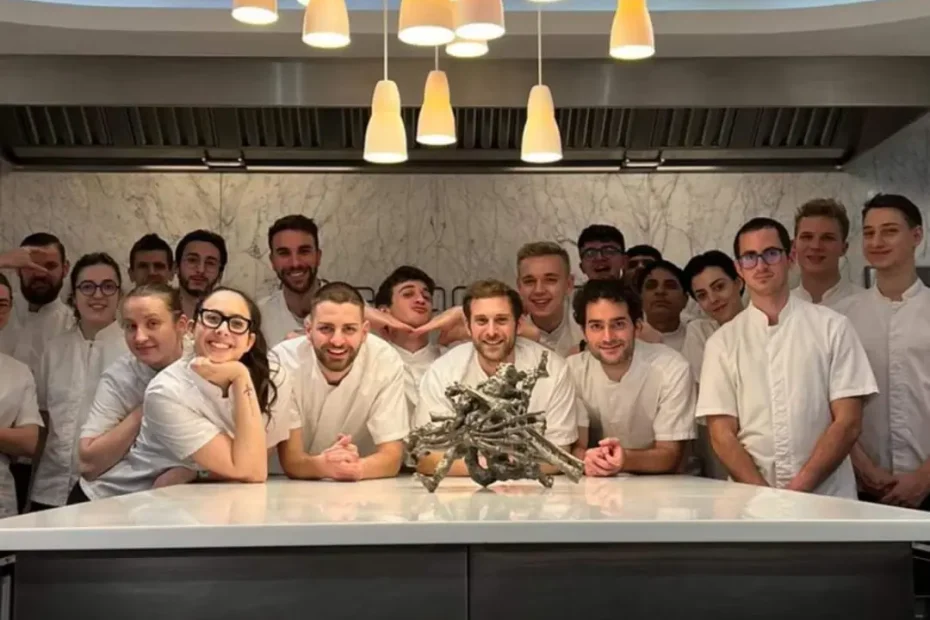Jonathan Beeri completed a one-year Culinary Arts Program at Culinary Institute of Europe. After working at domestic kitchens, last autumn he spent a month at the world’s best restaurant, Geranium to further his knowledge in gastronomy and gain experience in the fast paced world of Michelin-stars and fine dining. He shared his experiences in Copenhagen with us.

– Why did you choose to work at Geranium?
My main goal was to experience the current pinnacle of the profession. Scandinavian, nature-based gastronomy is the closest to my heart, and Copenhagen, as its main capital, also attracted me. In addition, the career and personality of chef Rasmus Kofoed captivated me. I thought that this constant striving for perfection and improvement would have an impact on the whole restaurant staff and I wanted to move in such an environment, as this is the atmosphere in which I feel at home. I was not disappointed.
– How did you get accepted to Gernaium, what was the process?
I was working in a newly opened bistro at the time in Budapest. The team and I were trying to add to the quality of Hungarian gastronomy, but unfortunately after a while I felt no progress and I missed the passion I had previously seen in the world of fine dining. That’s why I decided to apply for a job at Geranium. I wrote an email in January 2022 and received a reply within a few days, saying that I would be able to join them in November. I said yes. After about two months, I quit my job and started working as a courier. As I spent more time away from the kitchen, my love of cooking waned and I wasn’t sure if I wanted to go to Geranium at all, but I still managed to make up my mind and buy the plane ticket and book accommodation. I spent two weeks at Salt restaurant before the trip. This period helped me to got my enthusiasm back and I was able to perform at my best at Geranium.
– What was your overall experience there?
At the beginning I was very nervous, knowing that I was in the best restaurant in the world, with the best chefs in the world. But relatively quickly I was able to relax and get into the rhythm. It was a great experience to be part of the team, even if only for such a short time as a month.
– What was the most important thing you learned during that month?
The most important thing I learnt is that clean and tidy work is the basis of the art of cooking. If you learn to work like that, you can go anywhere in life.

– The closure of Noma has raised many questions about the sustainability of fine dining. How do you see this issue in the light of your experience?I am not surprised by Noma’s decision. Elite restaurants like theirs employ a lot of people, which is a huge cost, and the increasing cost of raw materials makes it difficult. A chef can be as dedicated as you like, working for months on end for free, but we must also remember that the time, energy and value we give and receive in return must be in balance. Unfortunately, this balance between fine dining businesses and their employees can very rarely be achieved, and in many cases it can seem that these restaurants thrive on ambitious employees who are able to overlook all of this. It really does not sound sustainable for long. In Hungary it is perhaps even simpler, they can run the restaurants with smaller staff, so I think it is easier to run an attractive workplace. However, for me, the most important thing is that cooking as an art continues to live on in some form, and I hope that fine dining will survive these difficult times and develop in a positive direction.
– The closing of Noma has raised many questions about the sustainability of fine dining. How do you see this issue in the light of your experience?
I am not surprised by Noma’s decision. Elite restaurants like theirs employ a lot of people, which is a huge cost, and the increasing cost of raw materials makes it difficult. A chef can be as dedicated as you like, working for months on end for free, but we must also remember that the time, energy and value we give and receive in return must be in balance. Unfortunately, this balance between fine dining businesses and their employees can very rarely be achieved, and in many cases it can seem that these restaurants thrive on ambitious employees who are able to overlook all of this. It really does not sound sustainable for long. In Hungary this might be simpler, they can run the restaurants with smaller staff, so I think it is easier to run an attractive workplace. However, for me, the most important thing is that cooking as an art continues to live on in some form, and I hope that fine dining will survive these difficult times and develop in a positive direction.

– What has been the most difficult for you in your work?
I have enjoyed every challenge, but of course there have been difficult moments. I always had to be very alert and focused to make sure everything went smoothly during the service. I had to be on top of that, to keep it up at all times, which wasn’t always easy because of the long working hours – which I had to add to a 45-minute bike ride between work and home.
– Why do you recommend to other young, aspiring chefs to do an internship abroad?
I think it’s very important for a newcomer to choose the right first experience in the kitchen, because if you start your career abroad in a top restaurant, for example, the professionalism and love of gastronomy that you find there can have an impact that you can build on for the rest of your life if you don’t let it slip away. On the other hand, if you start working in an ordinary restaurant at home, you risk losing interest in cooking and getting tired of your job, and as a result you will be only doing it for the money. The former may be the harder way, but I think it is more rewarding.

– What are your plans for the future?
My path has been quite bumpy so far, I would like to get a permanent position in the world of fine dining. I think I’ll definitely have some adventures abroad and I’m confident that I’ll eventually develop my own style and impress people with my food.

